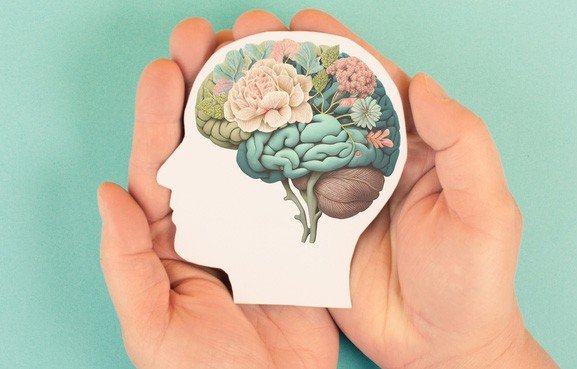Mental health has long been a topic shrouded in silence, stigma, and misunderstanding. For years, individuals suffering from mental health issues faced discrimination, isolation, and a lack of understanding, making it challenging for them to seek help or talk openly about their struggles. However, the growing wave of mental health awareness is slowly breaking down these barriers, fostering an environment where open conversations, education, and empathy are becoming central to societal change.
The importance of mental health awareness cannot be overstated. As conversations about mental health gain more traction globally, people are now beginning to understand that mental health is just as important as physical health. Whether it’s recognizing the symptoms of mental illness, removing societal stigmas, or providing access to the necessary care, mental health awareness is transforming lives and improving communities. In this article, we explore how mental health awareness is changing lives and what we can all do to continue breaking the silence.
Key Takeaways
Mental health awareness is crucial for reducing stigma and encouraging individuals to seek help without fear of judgment.
Early intervention and prevention are key benefits of increased mental health awareness, leading to better outcomes.
Education and resources are becoming more accessible, ensuring that people can get the help they need when they need it.
Mental health programs in schools, workplaces, and communities are instrumental in creating a supportive environment for mental well-being.
Everyone has a role to play in raising awareness—whether through personal experiences, sharing information, or supporting mental health organizations.
The Rise of Mental Health Awareness
Over the past decade, the conversation around mental health has made remarkable progress. Social media platforms, celebrities, activists, and advocacy organizations have played crucial roles in promoting mental health awareness. People are no longer ashamed to speak up about their struggles with depression, anxiety, or other mental health conditions, and more importantly, they are no longer being silenced.
Several key factors have contributed to the rise in mental health awareness:
- Public Figures Speaking Out
Celebrities like Dwayne “The Rock” Johnson, Prince Harry, and Selena Gomez have used their platforms to openly discuss their struggles with mental health. This has normalized the conversation and encouraged others to speak up without fear of judgment. - Social Media’s Role in Spreading Information
The rise of mental health-related content on social media platforms like Instagram, TikTok, and Twitter has allowed individuals to find support groups, mental health resources, and online communities where they can share their stories and receive guidance. - Mental Health Campaigns and Nonprofits
Campaigns like Time to Change and Mental Health America have played an instrumental role in spreading awareness through education, advocacy, and public outreach. Their work has brought mental health into the spotlight and emphasized the importance of mental well-being. - Workplace Initiatives
Many organizations have begun implementing mental health awareness programs, offering resources such as counseling, mental health days, and stress management techniques. This has made a significant difference in reducing the stigma around mental health in professional settings. - Educational Reform
Schools, colleges, and universities are increasingly recognizing the importance of mental health services for students. By providing mental health education and resources, educational institutions are ensuring that younger generations grow up with a better understanding of mental health.
The Impact of Mental Health Awareness on Individuals

As more people become aware of mental health issues, individuals across the globe are experiencing life-changing transformations. These positive impacts can be observed in several areas, including:
1. Reduction of Stigma and Shame
For years, many people who struggled with mental health issues felt embarrassed to talk about it. The fear of judgment and societal rejection kept them from seeking help. Mental health awareness campaigns have worked hard to reduce this stigma, and more individuals are now comfortable sharing their experiences without shame. People understand that mental health issues are not a sign of weakness, but a common part of the human experience.
2. Increased Access to Resources
With more awareness, mental health resources have become more accessible. Governments and organizations have invested in programs that promote mental wellness, offer counseling, and provide hotlines for those in need. This widespread availability of resources makes it easier for people to find help when they need it.
3. Improved Education
Mental health awareness programs are being incorporated into schools, workplaces, and communities. This has allowed people to identify mental health issues early on, promoting proactive care rather than reactive responses when issues worsen. By fostering an environment of education and open dialogue, people are more likely to seek help sooner and improve their overall well-being.
4. Stronger Support Networks
As society becomes more open to discussions about mental health, there is a greater sense of camaraderie among individuals who struggle with mental illness. Support groups, online forums, and therapy networks have flourished, allowing people to connect with others who understand what they are going through. This sense of solidarity can be a game-changer for those feeling isolated or alone.
5. Early Intervention and Prevention
When mental health awareness reaches younger generations, it helps prevent many mental health problems from escalating. Early intervention is critical in preventing long-term issues. People are now more likely to address mental health concerns before they grow into larger, more debilitating conditions.
Mental Health Awareness in Different Sectors

The benefits of mental health awareness extend beyond individuals to various sectors of society. Below, we explore how mental health awareness is making a difference across different spheres of life.
1. Healthcare
Mental health professionals, including therapists, psychologists, and psychiatrists, have long been at the forefront of mental health care. However, thanks to increased awareness, mental health is now being integrated into overall healthcare practices. Doctors and nurses are trained to recognize the symptoms of mental illness, and more healthcare professionals are offering mental health services.
2. Education
Many schools and universities are now offering mental health education as part of their curriculum. Students are being taught how to recognize stress, anxiety, depression, and other common mental health conditions. The addition of school counselors and campus therapists has allowed students to seek support in times of need.
3. Workplace
Mental health programs in the workplace are becoming increasingly common. From employee assistance programs (EAPs) to mindfulness workshops and mental health days, employers are acknowledging the impact that mental well-being has on productivity and morale. When employees feel supported, they are more likely to thrive both professionally and personally.
4. Community
Community-based mental health awareness initiatives are designed to provide individuals with local support and resources. These programs aim to reach marginalized groups who may not have access to traditional mental health services, ensuring that no one is left behind in the fight for mental well-being.
5. Policy and Government
Governments are recognizing the significance of mental health and investing in programs that promote mental health education, research, and services. Mental health funding and initiatives have become a priority in many countries, providing individuals with access to affordable care and reducing the stigma surrounding mental illness.
Understanding Mental Health Awareness: Key Facts and Figures You Should Know
Mental health awareness has emerged as one of the most important social movements in recent years. As more people become aware of the significance of mental well-being, the conversation has shifted from being a taboo subject to a widespread public discourse. People are no longer staying silent about mental health issues, and many organizations, communities, and governments are prioritizing mental health awareness as an essential part of overall health. Yet, despite all the progress, there are still many facts and figures that can help us better understand mental health and why we need to continue breaking down barriers. In this article, we will explore the key facts and figures that highlight the importance of mental health awareness.
What is Mental Health Awareness?
Mental health awareness is the understanding, acknowledgment, and discussion of mental health conditions, mental wellness, and mental health services. It also involves promoting mental well-being, reducing the stigma associated with mental health disorders, and encouraging individuals to seek help if needed. With mental health conditions affecting millions of people worldwide, spreading awareness is crucial for fostering a culture of understanding and support.
Key Facts and Figures About Mental Health
Mental Health Affects People Worldwide Mental health disorders are among the most common health issues globally. According to the World Health Organization (WHO), approximately 1 in 4 people will experience a mental health disorder at some point in their life. This means that mental health problems impact millions of individuals across the globe, regardless of age, gender, or socioeconomic status.
Mental Health is a Leading Cause of Disability Mental health conditions are the leading cause of disability worldwide. Depression is the single largest contributor to the global burden of disease, affecting more than 264 million people globally. This is followed closely by anxiety disorders, which affect over 280 million people. These statistics highlight just how widespread and disabling mental health conditions can be.
Suicide is a Major Global Health Concern According to the WHO, suicide is the fourth leading cause of death among individuals aged 15 to 29, with an estimated 703,000 people dying by suicide every year. This makes mental health awareness even more vital, as many suicide cases are preventable with early intervention, proper treatment, and support.
The Stigma Around Mental Health Still Exists Despite the progress in mental health awareness, stigma remains a significant barrier to individuals seeking help. One in five people with mental health problems report that they face discrimination as a result of their condition. A survey by Mental Health America (MHA) found that nearly 60% of people with mental health disorders do not seek professional help because of fear of being judged or misunderstood. Reducing stigma and normalizing the conversation is crucial to encouraging more people to seek treatment.
Mental Health and Physical Health Are Interconnected Mental health and physical health are closely connected. People with mental health disorders are more likely to experience chronic physical conditions like heart disease, diabetes, and obesity. Additionally, mental health conditions can worsen existing physical health conditions, creating a cycle of health problems that are difficult to break. Raising awareness about this connection helps people understand that mental well-being is as important as physical health.
Youth Mental Health is a Growing Concern Mental health disorders affect young people at alarming rates. According to the National Alliance on Mental Illness (NAMI), 1 in 5 youth aged 13 to 18 will experience a severe mental health condition at some point during their lifetime. Early intervention is crucial to prevent mental health issues from becoming more severe, which is why educating youth and providing resources is essential.
Access to Mental Health Care Remains Limited Although mental health services have become more accessible in many parts of the world, significant gaps still exist. It is estimated that more than 50% of people with mental health conditions worldwide do not receive the treatment they need. Factors such as lack of funding, poor mental health infrastructure, and cultural barriers contribute to limited access to care. The expansion of mental health services and funding is critical to addressing this issue.
Mental Health and Economic Costs Mental health conditions also have a profound economic impact. In the United States, the total economic burden of mental health disorders, including lost productivity and healthcare costs, is estimated at $193 billion annually due to depression alone. This highlights the importance of not only improving mental health services but also preventing mental health issues to avoid the long-term financial strain they place on individuals and society.
Mental Health Conditions Are Treatable One of the most important facts about mental health is that many conditions are treatable. With appropriate therapy, medication, and support, most people with mental health disorders can lead fulfilling and productive lives. However, less than half of individuals with mental health disorders receive treatment, with lack of access and misunderstanding being some of the primary barriers. Raising awareness about available treatment options is essential in ensuring that more people seek help when needed.
Workplace Mental Health is a Priority Mental health issues in the workplace are more common than many realize. 1 in 5 workers in the U.S. will experience a mental health disorder in any given year, and stress is one of the leading causes of mental health challenges in the workplace. Employers have begun to recognize the importance of mental well-being and have implemented workplace mental health programs, but there is still much work to be done. Promoting mental health in the workplace not only benefits employees but also boosts overall productivity.
The Role of Mental Health Awareness in Changing Lives
The statistics are compelling, but what truly matters is how mental health awareness can change lives. By increasing awareness, we can:
- Reduce Stigma and Encourage Open Conversations When people feel safe discussing mental health issues, they are more likely to seek help, share their experiences, and support others. This cultural shift is crucial in dismantling the harmful stigma that has long been associated with mental health disorders.
- Provide Early Intervention By recognizing the signs of mental health disorders early, individuals can access the necessary treatment before their conditions worsen. Early intervention has been shown to be particularly effective in treating conditions such as anxiety, depression, and eating disorders.
- Improve Access to Resources As mental health awareness grows, governments and organizations are more likely to allocate resources to improve mental health services. This includes creating mental health policies, providing counseling, and ensuring that individuals have access to mental health professionals.
- Foster a Supportive Environment Mental health awareness programs in schools, workplaces, and communities promote an environment of empathy and understanding. When people feel supported by others, they are more likely to manage their mental health and engage in self-care.
- Empower Individuals to Take Control of Their Mental Health Knowledge is power, and when individuals understand mental health and its impact, they are better equipped to take control of their well-being. Whether through seeking therapy, practicing self-care, or engaging in mental health support networks, people can take steps to improve their mental health with the right tools and resources.
Also Read: Essential Mental Health Tips For A Balanced Life
Conclusion
Mental health awareness is truly changing lives. The growing movement has empowered individuals to take control of their mental well-being and seek the support they need. As society continues to foster open dialogue and understanding, we can look forward to a future where mental health is prioritized on the same level as physical health.
Breaking the silence around mental health is not just about providing care for those in need—it is about creating a culture of acceptance and support for everyone. By continuing to spread awareness, advocate for better resources, and foster empathy, we can break down the remaining barriers and help individuals live happier, healthier lives.
FAQs
1. What is mental health awareness?
Mental health awareness refers to the efforts made to increase public knowledge about mental health conditions, reduce stigma, and promote mental well-being. It involves educating individuals about the importance of mental health and encouraging open conversations around the subject.
2. Why is mental health awareness important?
Mental health awareness is crucial because it helps reduce stigma, encourages early intervention, and improves access to mental health resources. It also promotes a culture of empathy and support, allowing individuals to seek help without fear of judgment.
3. How can I raise awareness about mental health?
You can raise awareness about mental health by speaking openly about your experiences, sharing mental health resources, and supporting mental health organizations. Participating in awareness campaigns and educating others about mental health are also effective ways to contribute.
4. What are some common mental health disorders?
Some common mental health disorders include depression, anxiety, bipolar disorder, schizophrenia, eating disorders, and post-traumatic stress disorder (PTSD). Each condition has its own set of symptoms, but many share common signs like mood swings, fatigue, and difficulty concentrating.
5. What can I do to support someone with a mental health condition?
To support someone with a mental health condition, listen without judgment, offer encouragement, and suggest they seek professional help. Avoid minimizing their experiences and be patient as they navigate their challenges.
6. How can workplaces promote mental health awareness?
Workplaces can promote mental health awareness by offering employee support programs, providing access to counseling services, and fostering a work environment that encourages open discussions about mental health. Encouraging breaks, stress management, and providing mental health resources are also important.
7. Can mental health awareness prevent mental illness?
While mental health awareness may not prevent mental illness, it can help with early identification and intervention. By understanding the signs of mental health conditions and seeking help early, individuals can manage symptoms more effectively and reduce the risk of severe mental health issues.




